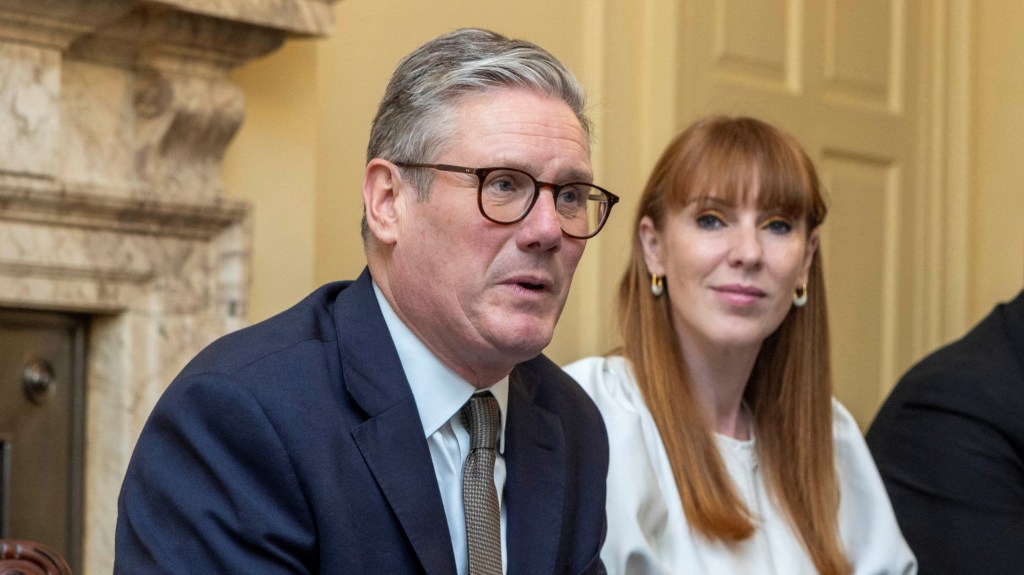Ofgem Chief Urges for Stronger Consumer Protections Amid Ongoing Energy Crisis
Jonathan Brearley, the chief executive of Ofgem, is emphasizing the regulator’s awareness of the financial strain many consumers face due to energy bills. During a recent conversation, he revealed that he frequently communicates with energy customers to gain insights into their experiences and challenges.
In a discussion, Brearley recounted a recent conversation with a customer who expressed that, despite improvements since the height of the energy crisis, many are still struggling to manage their bills.
Brearley’s sincere acknowledgment of these ongoing financial pressures reflects an understanding of the difficulties experienced by millions of households in Britain.

This meeting occurs as Brearley concludes a challenging five-year period at the helm of the energy regulator, characterized by escalating energy prices following the Russian invasion of Ukraine and the collapse of over thirty energy suppliers, resulting in unprecedented household energy debt.
Brearley has been asked to extend his term for another five years starting January, pending approval from Energy Secretary Ed Miliband and the Treasury.
Our meeting takes place on a sunny Monday afternoon at a quiet venue in Canary Wharf, close to Ofgem’s relocated office. Brearley highlights the practicality of the location, which provides distance from government operations, benefitting Ofgem’s independence.
As the waitress arrives, Brearley opts for a Diet Coke, affirming the unspoken lunchtime rule against alcohol to maintain focus for his upcoming meeting with Miliband.
Several pressing issues await discussion, including the price cap that Ofgem imposes to regulate standard tariffs for millions of households, which remains significantly higher than pre-crisis levels. Addressing affordability and service are his top priorities, as he advocates for enhanced powers for Ofgem to hold energy executives accountable.
Brearley believes reducing energy bills is intrinsically linked to diminishing the country’s reliance on international gas prices and transitioning to a cleaner energy system. Under recent legislation, Ofgem’s mandate to protect consumers aligns with achieving net-zero emissions by 2050—an initiative Brearley played a crucial role in developing over a decade ago.
He responds to remarks by Ofgem chairman Mark McAllister, who suggested that substantial bill reductions might not occur soon due to infrastructure costs necessary for enhancing renewable energy sources. Brearley indicates that updated goals introduced this year will necessitate a reevaluation of these plans.
Moreover, he acknowledges uncertainties in decarbonization costs, emphasizing the need for detailed planning before forming definitive conclusions.

Brearley is also asked about the ambitious Labour party goal of achieving a fully decarbonized electricity system by 2030. He candidly describes this goal as a formidable challenge, expressing skepticism about a completely carbon-free system but optimistic about significant decarbonization with a restructured role for gas.
As our food order arrives—simple Caesar salads with dressing on the side—Brearley shares that he intentionally keeps lunches light and straightforward, humorously labeling it his “middle-aged man diet.” He appears eager to discuss several pressing topics, especially given the record energy debt situation in the country, now standing at £3.3 billion.
Brearley admits that navigating the energy crisis has not been without missteps, recognizing the need for Ofgem to enhance its regulatory capabilities. He suggests that the government should consider implementing a social tariff program to assist vulnerable households with their energy bills.
This brings the conversation back to calls for reforming Ofgem itself, as Brearley argues that the regulator requires firmer powers to protect consumers adequately. He reflects on previous conduct in the energy market, particularly concerns surrounding British Gas’s practices regarding pre-payment meters and vulnerable customers.

Previous investigations highlighted alarming practices by British Gas, which included sending debt collectors to forcibly install pay-as-you-go meters in homes, often affecting vulnerable individuals. While Ofgem initially proposed a voluntary code of conduct, it later shifted to enforceable regulations after pushback from advocacy groups.
Looking back, Brearley recognizes the necessity of a more directive approach to ensure customer protections within the energy market.
Despite the rigors of his professional role, Brearley strives to balance work and family life, enjoying time with his wife and two young sons. He reflects on his upbringing in a farming family and how it has influenced his desire for a tranquil countryside lifestyle, leading him to relocate from London to Buckinghamshire.
With only a brief period spent in private consultancy, Brearley has devoted his career to the public sector, beginning with the establishment of a climate change office nearly twenty years ago. Although his career path was not premeditated, he acknowledges a strong commitment to the energy sector moving forward.
One key takeaway from his tenure is the importance of being prepared for unexpected developments in the industry. Brearley reminisces about his predecessors’ misconceptions that the retail energy market was stable, a notion that has proven to be far from reality.
CV
Age: 51
Education: Gillingham School in Dorset; Sexey’s School, Bruton; University of Glasgow (Maths and Physics); University of Cambridge (MPhil in Economics)
Career: 2002-06: Prime Minister’s Strategy Unit; 2006-09: UK Government Office of Climate Change; 2008-14: Department of Energy and Climate Change (Director of Energy Markets and Networks); 2013-16: Consultancy; 2016-present: Ofgem (Chief Executive since 2020)
Family: Married with two young sons
Receipt
2 x Caesar salad £14.95, 1 side of chicken £5
2 x Diet Coke £2.55
Service £5




Post Comment